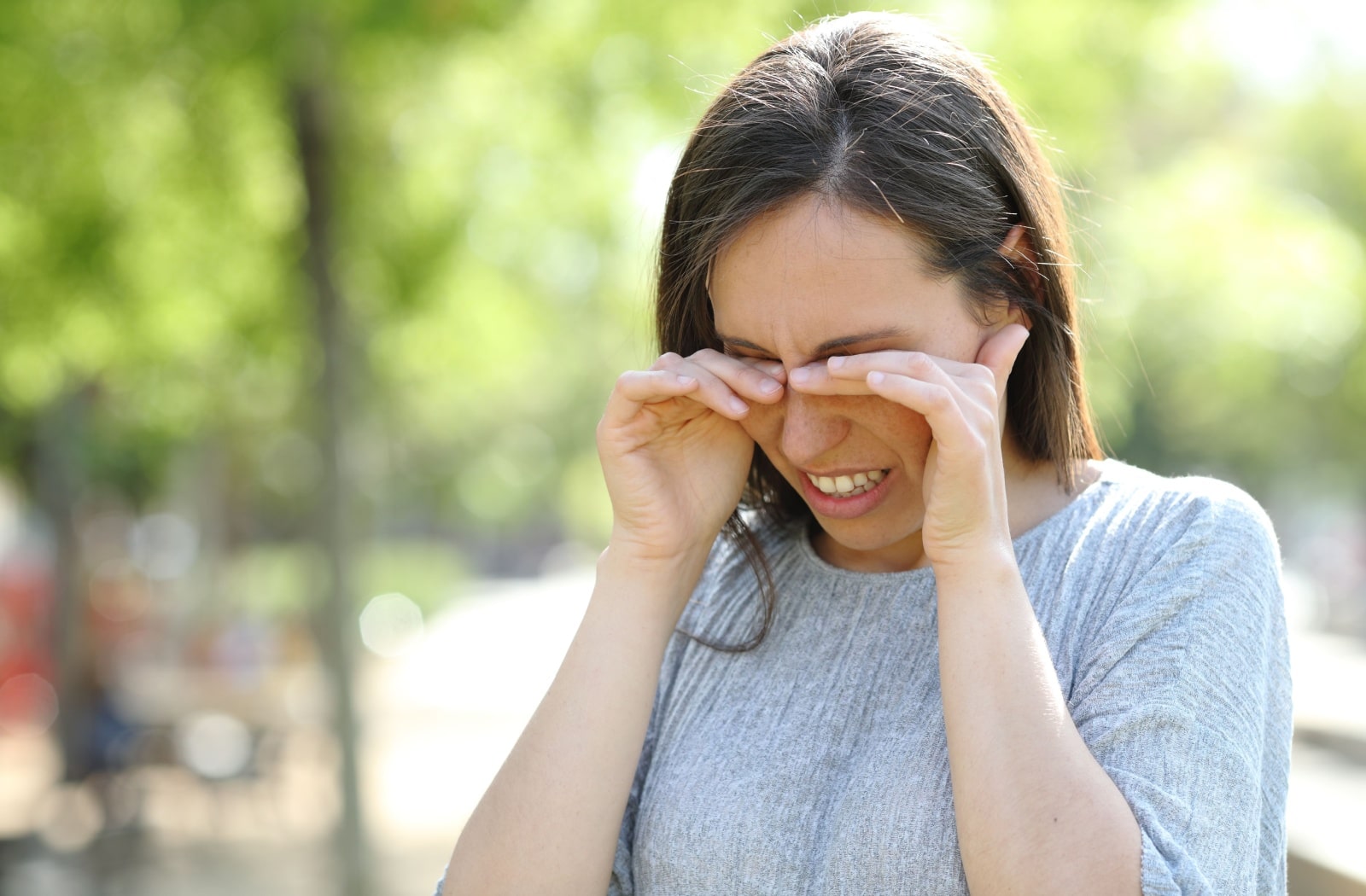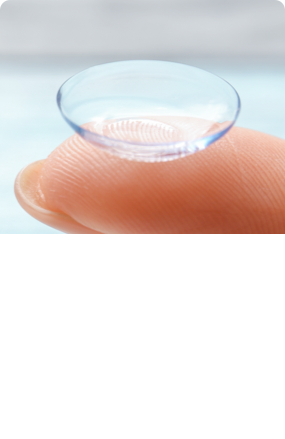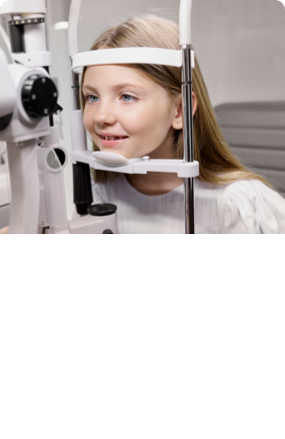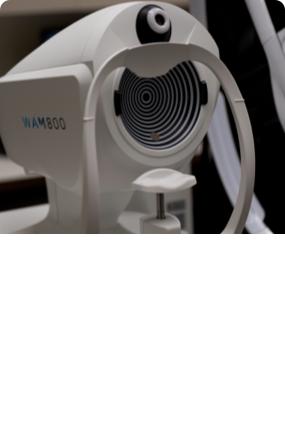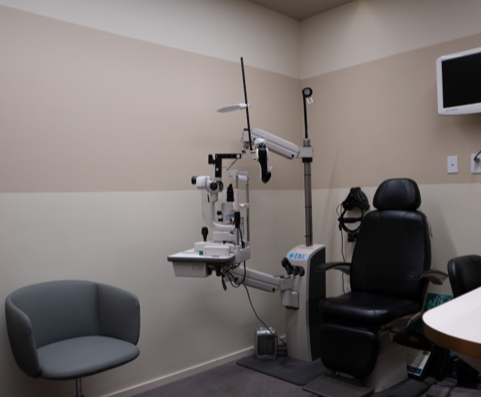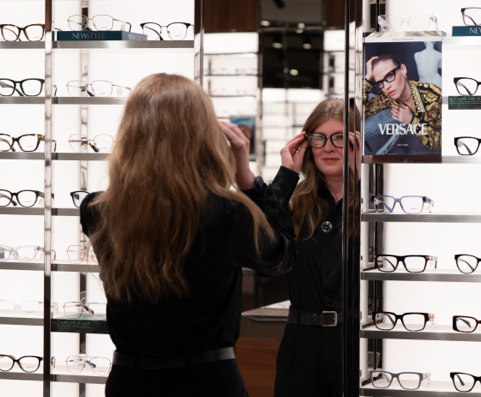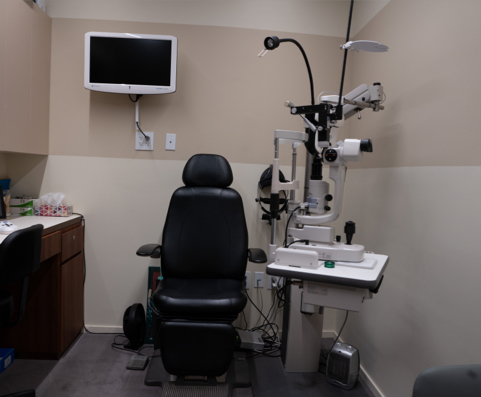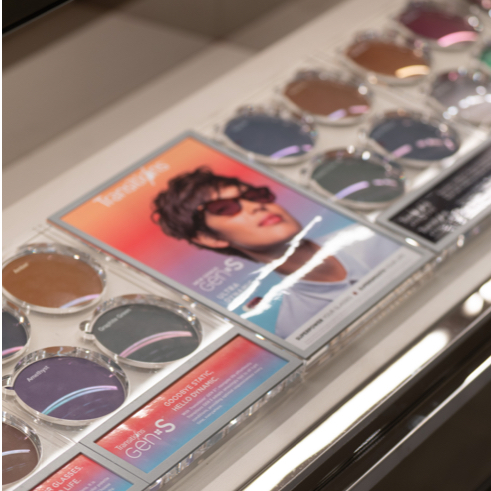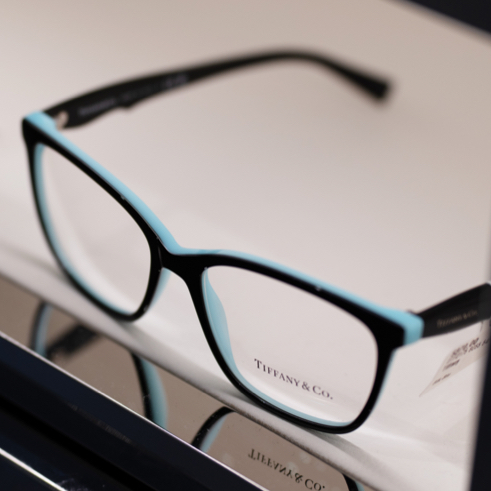Allergies are a widespread problem affecting many people daily. They’re the body’s overzealous immune response to substances it mistakenly believes are harmful.
For those of us who deal with the persistent sniffles, itchy throats, and sneezing associated with allergies, there’s often another irksome symptom to add to the list: dry eyes.
As you approach your next eye exam, you may wonder if allergies can cause dry eyes. The answer is quite simple, and it is, yes, they can. This blog will explain the ways in which allergies can cause dry eyes along with at-home and medical interventions to help alleviate symptoms.
What Are Dry Eyes?
Dry eyes occur when your eyes don’t produce enough tears, or when the tears evaporate too quickly. This can lead to insufficient lubrication for the surfaces of your eyes. This condition can result in a host of uncomfortable sensations, including itchiness, redness, a gritty feeling as if something is in your eyes, and blurred vision.
Environmental factors, screen use, certain medications, and, notably, allergies, can all contribute to the development of dry eye syndrome. Without adequate moisture, the eyes become vulnerable to irritation and discomfort, underscoring the importance of understanding and addressing the underlying causes.
Understanding the Connection Between Allergies & Dry Eyes
Allergies and dry eyes often go hand in hand. Both can be prompted by an array of environmental triggers, from pollen and pet dander to dust and certain chemicals. Here’s how allergies can lead to dry eyes:
Allergic Conjunctivitis & Dry Eyes
One of the most common eye issues related to allergies is allergic conjunctivitis. When your eyes are exposed to allergens, they react by releasing histamine and other chemicals designed to combat these foreign invaders.
This reaction causes inflammation and can lead to symptoms such as redness, itchiness, and watering or tearing up, which oddly enough, can actually worsen dry eye symptoms.
Effects of Histamines
Histamines can stimulate tear production as an inflammatory response. However, these aren’t the quality tears that keep your eyes comfortably lubricated.
Instead, they’re like the tears you produce when chopping onions. They flood your eyes but don’t have the necessary balance of mucus, water, and oil to coat the surface adequately. This results in what feels like dry, irritated eyes.
Impact of Medications
Many of us turn to antihistamines to cope with the discomfort of allergy symptoms. While these medications can effectively stop the histamine reaction, they also have a common side effect: reducing the production of bodily fluids, including tears. This diminished tear production can exacerbate dry eye symptoms even more.

Tips for Managing Allergy-Induced Dry Eyes
Now that we know allergies can contribute to dry eyes, what can health-conscious individuals and allergy sufferers do to mitigate this annoying condition?
Avoid Allergens
Minimize exposure to known allergens. For instance, keep windows closed during high pollen days and wash your bedding regularly to prevent dust mite accumulation. When outside, wear sunglasses to shield your eyes from pollen and other irritants.
Use Artificial Tears
Consider over-the-counter artificial tears to keep your eyes moist and alleviate dryness. Be sure to choose preservative-free options if you’re using them frequently. If your dry eye symptoms are severe, you may want to speak with your doctor about prescription eye drops or other treatment options.
Consult Your Eye Doctor
If allergies and dry eyes impact your quality of life, it’s best to consult an optometrist for proper diagnosis and treatment. They can provide personalized recommendations based on the severity of your symptoms.
Stay Hydrated
Drinking plenty of water helps maintain natural moisture levels, including your eyes. Aim to drink at least 8 glasses of water daily to keep your eyes and body hydrated.
Try Allergy Medications with Caution
Consult your healthcare provider to find allergy medications less likely to contribute to dry eyes, or explore allergy immunotherapy. This treatment can help your body naturally tolerate allergens, reducing your reliance on medications.
Use a Humidifier
Adding moisture to the air with a humidifier can provide relief from dry environments. This can be especially helpful during winter when indoor heating tends to dry out the air.
Wear Sunglasses Outdoors
Sunglasses can protect your eyes from allergens, wind, and other irritants when you’re outside. Look for sunglasses with wrap-around frames to provide maximum coverage and reduce your exposure to allergens.
Knowing When to See a Doctor
While these self-care tips are helpful, sometimes you may need professional help. If you frequently suffer from dry eyes and over-the-counter solutions aren’t providing relief, consult an eye care specialist. Persistent dry eyes can put you at risk for infections or damage the surface of your eyes.
Take Control of Your Eye Health
Allergies can contribute to the discomfort of dry eyes, presenting a challenge for many. By understanding this connection, you can take proactive steps to alleviate symptoms and protect your eyes.
Every person is unique in how they respond to allergies and treatments. Finding the right balance of allergen avoidance, over-the-counter aids, and professional guidance is key to keeping your eyes comfortable during allergy season.
We encourage you to stay informed, be proactive in managing your symptoms, and reach out to Orchard Park Optometry in Kelowna for guidance. Your eyes are invaluable, and taking care of them during allergy season is a must for your well-being. Book an appointment with us today!

